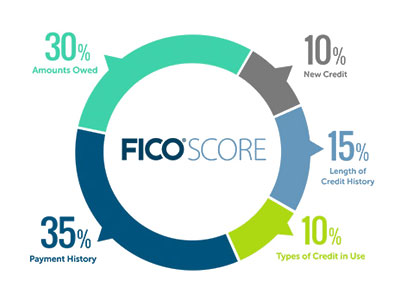Rental Application Fraud.
What You Need to Know

The housing market has seen a seismic shift with the economic fallout from the COVID-19 pandemic. High unemployment and minimal stimulus relief means tenants still struggle to pay rent. Housing is in demand like never before, since many people are on the verge of homelessness due to mass layoffs and have nowhere else to go. Because of this, many people are resorting to rental application fraud to secure a place to live, often by lying about their income.
Rental application fraud is when someone applying for an apartment fabricates their income and rental history in order to pass routine background checks, deliberately misrepresenting financial stability and trustworthiness. According to a Snappt survey published in late 2020, rental application fraud is on the rise and has gotten worse since the start of the pandemic. Last year alone, 29% of rental applications had forged or fabricated documents and 23% of fraudulent applications went undetected! Those numbers do not look good, and the forecast for 2021 doesn't look any better.
Landlords and property managers affected by this recession are desperate to fill their properties with paying tenants, usually working with understaffed leasing offices (or by themselves, as is the case with most landlords) to get applicants screened as quickly as possible to fill vacant apartments as soon as possible. Because of this rush, property managers and landlords accept fraudulent applications when screening new tenants. In short, they are leasing to people who don't intend to pay rent. Landlords with light staffing also struggle to combat application fraud on their own between costly legal fees for evictions, and time double-checking information on every application.
While property management companies have suffered from this unprecedented spike in rental application fraud, independent landlords have borne the brunt of it because they don't have access to the more sophisticated screening methods available to larger property management groups. With 85% of landlords and property managers falling victim to rental application fraud and 10% of fraudulent applications going undetected, independent landlords are taking serious hits to their financial security when they lease their units to tenants who have lied about their income.
Evicting fraudulent tenants is costly and time consuming with backlogs of evictions that states have from moratoriums put in place in 2020. With 11% of tenants no longer paying rent and evictions increasing by 35%, many landlords find themselves overwhelmed with a bottleneck of evictions for them (and courts) to handle. This paperwork coupled with the costs to go through the eviction process legally makes it even more important to find new tenants that treat them better than the last.
So, how can landlords and property managers spot application fraud before it's too late?
While some signs on an application are subtle enough to go undetected by professional property managers, there are tell-tale signs that stick out, even if you've taken on a new location/site.
1) Providing bogus referral contacts. Many people without quality references will list friends and family members as their employment and residence contacts, sometimes having an agreed upon "script" that they will follow to give a glowing recommendation for the fraudster. They have what appears to be legitimate references unless you go over them with a fine-toothed comb. You can double-check company rosters online or Linked In to see if your applicant really works for the company the applicant says they do. Also, searching the phone number listed online should direct you somewhere to their employer's website. If not, you may have the personal phone number of the reference, and as a legitimate employee of the company, they should be able to answer questions easily or direct you to the department that can.
2) Forged pay stubs and identification documents. Applicants have access to more sophisticated image and document editing software than ever before, which means they can digitally alter or forge their pay stubs and Social Security cards online. Most of these documents can fool anyone, with the only giveaways being perfectly rounded payment amounts on pay stubs, a misaligned font or pasted name on Social Security cards. While there are online tools available to help detect forged documents, many of these programs aren't very user friendly and have costly subscriptions.
3) The applicant overpays you wanting to move in immediately. This is a tactic people will use to "gain instant credibility" with a landlord or small property management group. The idea is that they will provide a large amount of money up front (either 3 months of rent or a larger incorrect first month's rent) to show that they have the means to afford the apartment. It's to distract from anything you may find on their credit or criminal background check, or if they cannot provide employment/rental references. Be sure to do the math, if the amount they paid you was more than their salary, where did this amount come from? When personal checks are involved, the first check written may bounce; while this could be a one-time instance, it can take precious time away from the application process.
If the odds are stacked this heavily in a fraudulent applicant's favor, what can a landlord do to make sure they don't fall victim to these schemes?
Luckily, there are ways to detect rental application fraud before it's too late.
Calling an applicant's employer, or using third-party verification is a secure and reliable way to check if an applicant's income matches what they list on their application. Third-party verification services like The Work Number by Equifax is a third-party services that offers comprehensive reports on an applicant's employment and salary history, which is why it's trusted by professionals across different industries. There are other third-party services, but any direct contact with their employer such as a person or department who can verify income, is a great way to catch application fraud.
That said, meeting applicants in person can also help with weeding out fraudsters. While COVID has changed "virtual leasing," people engaging in rental application fraud will want to avoid meeting with property owners or leasing agents before securing their rental. They want to grab it before the landlord figures out their deception. Because many people engaging in application fraud fear being found out, they try to avoid confrontation at all costs. Always meet potential tenants in person or virtually to gauge if they are as trustworthy as they claim to be.
If you don't have the time or resources to thoroughly check documents or income, a third-party background screening company like Real ID Inc can do all the work for you, and verify any tenants you offer rent to are on the up-and-up. Out of all methods, this one has the highest success rate because these groups base their entire business on screening for the highest level of accuracy. Real ID offers comprehensive income and rental verification, including third-party verification, so you can rest easy knowing that we've got your back.




